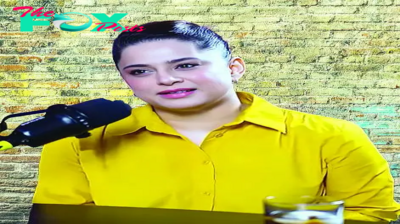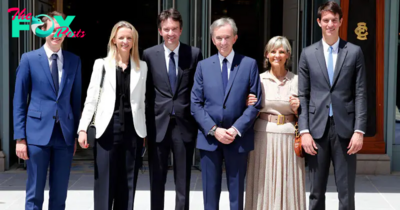Lifestyle
Back to the Roots: Manav Tuli on His Life’s Journey to Leela
After leaving Chaat, where he revolutionised the way Hong Kong thinks about Indian food, chef Manav Tuli has found new purpose in Leela, a restaurant he can at last call his own.
Almost two decades ago, the late Steve Jobs offered a gem of wisdom during a Stanford University commencement speech. “You can’t connect the dots looking forward; you can only connect them looking backwards,” he said. “Believing that the dots will connect down the road will give you the confidence to follow your heart, even when it leads you off the well-worn path, and that will make all the difference.” These few lines are what came to mind time and again when I spoke with chef Manav Tuli, who owns and helms Causeway Bay’s beloved Indian restaurant Leela.

Growing up in India, Tuli never really thought he’d amount to much. His school grades weren’t good and his future seemed bleak. “I wasn’t good at anything,” he says, laughing. “I scored such low marks in school that no college wanted to take me. As with Chinese society, in Indian society if your child isn’t doing well, it’s a big embarrassment for the whole family. And I was one of the biggest embarrassments for mine.”
One day his father sat him down and together they confronted the truth: that academia simply wasn’t Tuli’s thing. A plan was put in place for him to work for a while as a civil contractor with a neighbour’s cement business and for him eventually to open his own shop, but that was short-lived.
“It was a very toxic environment,” Tuli recalls. “Everyone coming to my house would talk about their sons going off to Bombay to study at whatever university. ‘I heard Manav is working in the cement Business – I hope you guys are OK with that,’ they’d say to my parents. Everyone was saying the same things. I just wanted to get away from all that. I didn’t know where or how, but I prayed to God to take me away.”
Perhaps God did answer his prayers, because just when Tuli was desperate for a change, the Institute of Hotel Management and Catering Technology called to tell him he’d passed the entrance exam. Before long, he passed the interviews too, and enrolled at the college. When given the choice of which branch to go to, without hesitation he picked a small town in Kerala. It was the farthest location away from home.

There, three years would go by, with minimal support from his father, who initially refused to pay for his tuition and lodging fees, saying Tuli was too much of a risk. Fortunately, Tuli prevailed and graduated, and after a lengthy period of job interviews in which he travelled across the country several times, he eventually secured a position at a hotel restaurant in Udaipur. It was there he met his greatest mentor, chef Surinder Singh, who ignited his passion for the culinary arts and encouraged his progression to The Oberoi in Mumbai. Equipped with a renewed sense of confidence and passion, Tuli shed a pattern of academic failure and pursued further qualifications with the hotel before heading overseas.
“After my management trainee programme, this drive to do even better and achieve even more kicked in,” Tuli says. “I wanted to establish myself. That’s what pushed me to move to Mauritius, but even though the money was good, my career wasn’t moving forward. At the time, everyone used to talk about Indian food evolving in London, so after a few years on the island, I moved to England.”
Following what he calls a surreal phone call with restaurant guru Camellia Panjabi, Tuli moved to London to work at Chutney Mary, before eventually progressing to Tamarind, both established Indian restaurants in the British capital. It was while there that at last he gained respect from his father over how far he’d come.

“I asked him to come to London, and he saw my restaurant and the respect I was getting there,” he reminisces. “I wasn’t popular, but people in my restaurant liked me, and they respected me. Once he saw that, his mind changed. “I also bought a Mercedes in London, and when he saw it, he asked, ‘Are you sure that’s your car?’. That’s when
he realised I’d made it.”
Despite his massive success during his eight years in London, Tuli’s constant desire for new challenges only grew stronger, and it was time to press forward once again. That’s when he made one of the most defining decisions of his life: coming to Hong Kong.
“A few months into Tamarind, I got a call from Rosewood Hong Kong asking me to help them open an Indian restaurant,” Tuli says. “I’d just bought a new house, a new bike and a new car. My daughter had just been born and my parents were in town. But in that moment I knew I had to go to Hong Kong. I told my wife, and she asked me if I was crazy – she actually thought I was joking. I told her I was serious, and somehow I managed to convince her to move with me.
“When I arrived, the plans to open Chaat were delayed,” he continues. “I was told we’d open in December, so none of the team was hired. December came, and it got delayed again. They said January or February, and when those months came, Covid started. Then they told me Chaat was delayed until further notice. At that time I was scared. My wife asked me what kind of a stupid person I was – and I agreed with her. After school and then college, I’d done it again, I thought. I might lose the job.”
But this all changed when Rosewood eventually decided to open Chaat, and all the dots leading up to this point in Tuli’s career were finally connected. “There was no looking back from there,” he says. “Until the day we opened, I thought Hong Kong was the worst decision I’ve made in my life. And then, it became the best decision I’ve ever made.”

Over four and a half years at Chaat, Tuli and his team won numerous awards, including a Michelin star. To say he changed the way Hong Kong thinks about Indian cuisine would be an understatement – he revolutionised it, elevating it to the realms of fine dining. But, as with all his previous endeavours, he began to feel he’d achieved all he could with the restaurant.
“If someone asked me in January of 2020 how I felt, I would’ve said I had no good things to say about it,” Tuli says when asked how he looks back on his time at Chaat. “But now when I look back, it was the best ride ever. The team was brand new, and people didn’t know what to expect from me, but the stars aligned at just the right time and place. Everything was just perfect.
“Having said this, I thought I could do better, and that’s why I left Chaat. It started becoming the same as Chutney Mary – monotonous. We achieved a lot and the hotel had supported me all the way, but I wanted more. The moment something becomes monotonous, you get bored – and when you get bored, you’re not putting your heart and soul into it. You’re not growing, and that’s what I wanted to do. Once that hit me, I realised I needed to find something new.”
That something is Leela, the Causeway Bay restaurant he founded and co-owns with JIA Group thanks to an introduction to their CEO Yenn Wong, made by Andō’s chef Agustin Balbi, something Tuli says he’s extremely grateful for. Unlike Chaat, which explored Indian street food, his latest venture focuses on the cuisine created when emperors still ruled India, featuring wonderfully enticing dishes such as Lucknowi tokri chaat, chestnut paneer tikka, bone-marrow biryani and Hyderabadi dal.
Colourful though his menu now sounds, it wasn’t always the case. When Leela opened last year, Tuli had a moment of panic, exacerbated by the expectations others had of him and his food following his success at Rosewood.

“Of course, pressure is there, and people have expectations,” Tuli confesses. “The first tasting we had after a week of opening was a disaster, and at that moment I thought I was a failure. It’s difficult. It’s not easy, and that’s why I changed the whole menu. I didn’t want people to compare Chaat and Leela, because they’re two completely different things. But the pressure was there, I won’t deny it.
“I really wanted to leave Chaat on a high note, but that meant I had to replicate that success in a different place, and that’s challenging,” he adds. “I had a lot of sleepless nights, but things are smooth now, and that sense of achievement and happiness is there.”
Now, seven months on, Tuli sees a full house at Leela often, with many patrons who’ve fallen in love with his vibrant Recipes and perfect execution becoming regulars. For a chef who worked tirelessly for others for decades, it’s a time of celebration and an opportunity to share something personal with Hong Kong.
In Pakistan Tuli’s grandparents had been wealthy, but when eventually they moved to India they’d had to leave everything behind, which depressed his grandfather so much he turned to alcohol. Although he opened a restaurant in central India, it turned out to be a disaster – and that was partly why Tuli’s father had never wanted his son to be associated with the hospitality industry.
“When I opened Leela, I wanted to tell that kind of story to my audience,” Tuli explains. “That’s where my own story started – two generations ago – and I wanted to showcase the food from Greater India, where my grandparents were from. India used to span Afghanistan, Pakistan, Nepal, Bangladesh and Sri Lanka – all those nations belonged to the Mauryan empire, and that’s what I wanted Leela to be about.”

Anyone familiar with his work at Chaat knows that the historic significance of Indian cuisine has long played a big part in Tuli’s cooking, and his latest fascination with the ancient recipes of the Mauryan empire puts his talent for rediscovering long-forgotten gems to good use. But what takes it a step further than simple re-creation is the flair added to the dishes by his own interpretations.
“I’m not intelligent enough to do molecular gAstronomy,” Tuli says, laughing. “I’m still not a good student, but what I do enjoy is reading about History. It fascinates me what kings and queens would’ve eaten at the time. For example, our lamb Nagori Korma isn’t something you’d find at any other restaurant. It’s a recipe from the Mughal era but it was made in Hindu kitchens, because Mughal culture was dominant in the Nagaur region of Rajasthan. The recipe was so popular that the Hindus took it and did it with lamb that they’d marinate in fenugreek powder, which is very unusual, but delicious.
“When I find all these old recipes, I interpret them in my own way. Sometimes I like to play with the ratios and proportions. The Nagori Korma I make here is my own version, and I wouldn’t ever say that it’s the original one the King of Nagaur used to have. I’ve never tasted it, it’s only there in the books, so I don’t know. But my version is what makes sense to me, what I think it should’ve been like, and it’s like nothing you’ve tried before. That is the type of food I want to share with everyone.”
-

 Lifestyle2h ago
Lifestyle2h agoSupport for Palestine nearly ended Barrera's career | The Express Tribune
-

 Lifestyle2h ago
Lifestyle2h agoFrom the camera to the kitchen | The Express Tribune
-

 Lifestyle5h ago
Lifestyle5h ago28 Luxury Gifts That Are Worth the Splurge
-

 Lifestyle6h ago
Lifestyle6h agoMy In-Laws Refused to Come for Thanksgiving but Sent Us a ‘Gift’ – When My Husband Opened It, He Screamed, ‘We Have to Drive to Their Home Now!’
-

 Lifestyle6h ago
Lifestyle6h agoI Married a Homeless Man to Spite My Parents – A Month Later, I Came Home and Froze in Shock at What I Saw
-

 Lifestyle6h ago
Lifestyle6h ago3 Real-Life Stories of Weddings That Went Horribly Wrong
-

 Lifestyle6h ago
Lifestyle6h agoWoman Got Involved in a “Best Mother” Competition but Quit After Reading Her Daughter’s Diary – Story of the Day
-

 Lifestyle6h ago
Lifestyle6h agoMy Husband Threatened to Divorce Me After I Refused to Attend My SIL’s Vegetarian Thanksgiving Dinner



























